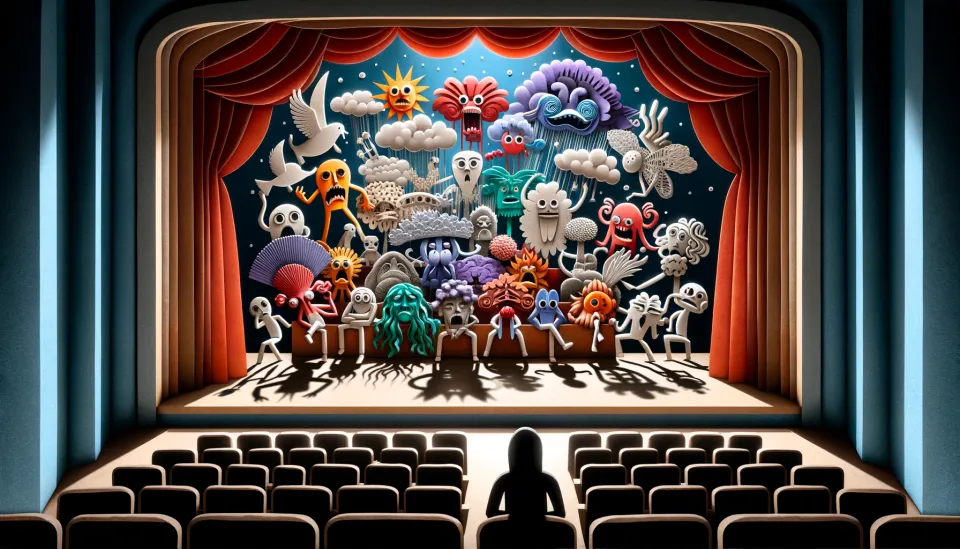The Drama in Our Minds: Taking Control of Our Thoughts and Emotions

Have you ever felt like your mind is staging a never-ending drama, where thoughts and emotions are the main characters, constantly stirring up trouble?
It's like being stuck in a play you never auditioned for, right?
Well, it's time to become the director of your own mental narrative.
1. The Making of Mental Dramas
Imagine your mind as a stage. Every thought and emotion is an actor, playing out a scene. Sometimes, these scenes turn into full-blown dramas, complete with unnecessary twists and turns.
Here's the kicker: this turmoil? It's often self-made. That's right.
Our thoughts and emotions are just perceptions – they're not always the ultimate reality. It's like watching a movie and believing it's real life.
But guess what? You've got the remote control. You can pause, play, or even switch off these dramas.
How?
By practicing detachment and observing your thoughts, rather than getting tangled in them. This gives you a clearer view of what's really going on in your mind.
2. The Script We Write Ourselves
Ever noticed how a simple event can become a major issue, thanks to our interpretations?
That's our inner scriptwriter adding drama where none is needed. We often spiral into negativity, assuming the worst.
But here's a plot twist: cultivating self-awareness can help us recognize these patterns. It's like shining a spotlight on the stage, revealing the unnecessary props and scenes we've created.
By challenging and reframing irrational thoughts, we can dissolve the drama we've been unconsciously scripting.
3. Stepping Back: Observing Without Entanglement
Here's a powerful technique: mindfulness.
It's like sitting in the audience of your own mind, watching the play without getting up on stage. Through mindfulness and meditation, we create a space between our thoughts and our self-identity.
Remember, thoughts are temporary visitors; they don't define who you are.
By engaging in grounding activities and staying present, you diminish their control over you. It's like turning down the volume of the drama on stage.
4. Detaching for a Clearer View
Detachment doesn’t mean not caring; it means viewing your thoughts objectively.
It's like stepping back and watching the play from the balcony.
You realize you're not your thoughts or emotions. Journaling can be a great tool for gaining clarity and distance.
Sometimes, seeking external perspectives can provide unbiased insight into our mental narratives. With detachment, you can respond rationally, bringing the curtain down on mental drama.
5. Rewriting the Script: Embracing Control
Here's the empowering part: you have the power to rewrite this drama.
Embrace your control over your mental state. Make decisions that foster calmness and clarity.
Engaging in regular mental health practices is like rehearsing for a positive mind.
Surround yourself with positivity – it sets the stage for peace and happiness.
Remember, ending mental drama is the first step toward a narrative filled with peace and empowerment.
Take the Director's Seat
Don't let your thoughts and emotions run the show.
Take charge of your mental narrative. End the drama and start writing a story of peace and empowerment.
Remember, you're the playwright of your mind. What story will you write next?